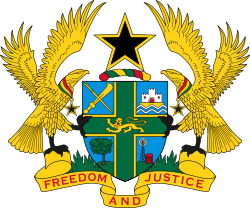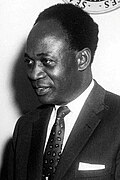| |||||||||||||||||||
All 198 seats in the National Assembly 100 seats needed for a majority | |||||||||||||||||||
|---|---|---|---|---|---|---|---|---|---|---|---|---|---|---|---|---|---|---|---|
| |||||||||||||||||||
 |
|---|
| Constitution |
| |
Parliamentary appointments were scheduled to be held in Ghana on 9 June 1965. [1] As the country was a one-party state at the time, no parties except President Kwame Nkrumah's Convention People's Party (CPP), were allowed to participate. The CPP's central committee nominated 198 candidates for the 198 seats in the National Assembly, who were then declared elected without a vote taking place. [1]
